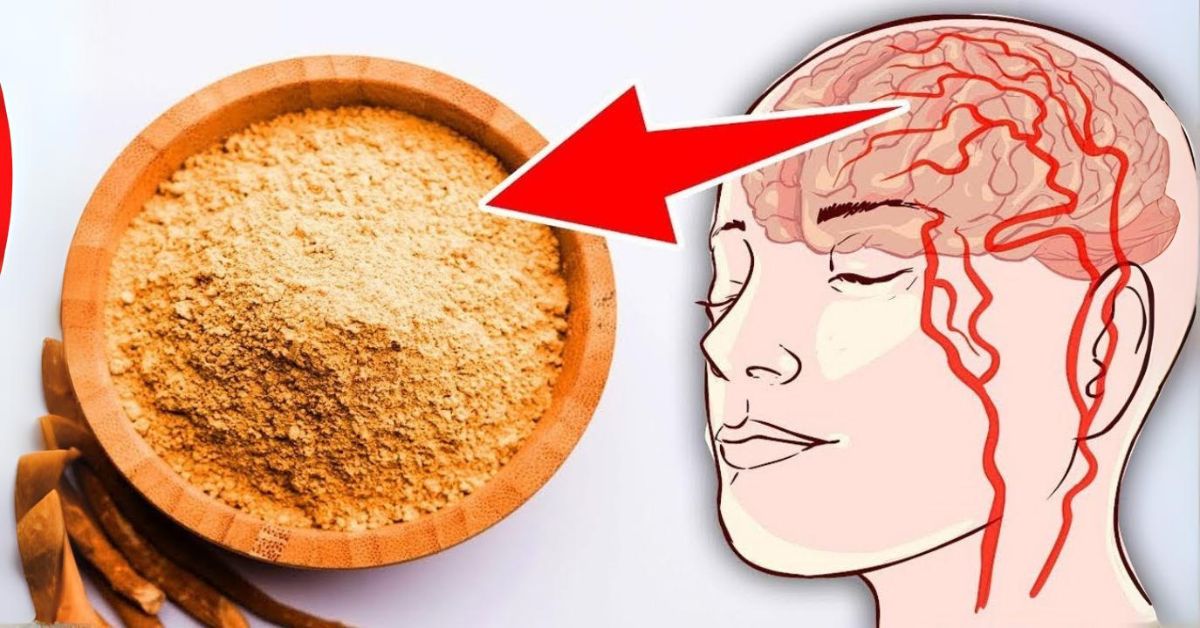Among the many health advantages of Neem Detoxify Body and Boost Immunity, a potent medicinal herb that enhances liver, mouth, and skin health, it improves good hair, lowers blood sugar, strengthens immunity, and detoxifies the body. Because of its antibacterial qualities, it effectively combats illnesses and infections.
Miracle herb neem is well-known for its potent health advantages, which include better digestion, immunity, and skin health. It is perfect for people with diabetes since it cleanses the blood, supports liver function, and controls blood sugar levels. Neem’s antibacterial qualities promote hair growth while treating dandruff, infections, and dental illnesses. It shields the body from pollutants by acting as a natural detoxifier. Side effects of eating neem leaves on empty stomach also helps prevent common diseases, fight malaria, and heal wounds. Including Neem in Ayurveda, your regimen guarantees improved general health and well-being.
What Happens When You Chew Neem Leaves?
Neem juice benefits have long been recognized for their potent cleansing qualities. Indeed, chewing Neem in the morning has long been a tradition in most homes, but did you know what occurs when you chew fresh neem leaves? According to Ayurvedic health experts, chewing neem leaves is thought to naturally aid in efficiently cleansing the digestive system by eliminating harmful toxins from the body.
How do you use Neem, and how much Neem Leaf to take Daily?
Here are some ways to benefit from Neem’s many advantageous qualities:
Neem leaves: For medicinal purposes, 2 to 4 grams of powdered neem leaf/2 to 4 teaspoons (10–20 ml) of neem leaf juice are traditionally taken twice or thrice daily. To treat skin issues, the leaves are also mashed into a paste with a bit of water and applied directly or mixed into your bath water. However, because neem leaves are also highly bitter, you might only be able to consume a small amount of the paste or juice at a time and only after an allergy test. Although neem leaf extract capsules are easily accessible, you should only take them with your doctor’s approval or under the supervision of an alternative medicine practitioner.
Neem leaf teas are usually safe if you stick to about 2 cups daily.
Neem bark: 30/60 mg of neem bark extract can help heal stomach ulcers. However, after reviewing your situation, an alternate practitioner must validate this. Chewing neem sticks can help maintain dental health.
Neem oil: While 1 to 4% neem oil diluted in mustard or coconut oil acts as an insect repellent, ointments with about 5% neem oil are usually used for skin problems. Neem seed oil should only be taken under a doctor’s care because it can have harmful consequences, especially in young children. Additionally, remember that some people may experience an allergic reaction to neem oil, so do a patch test before using it directly.
Neem flowers: These are traditionally used in India to make light lentil soups known as rasam or flower rice.
Benefits of Drinking Boiled Neem leaves Water | Benefits of Eating Neem Leaves | Neem Water Bath Benefits

Neem water benefits are widely used in traditional medical systems such as Ayurveda, referred to as “sarva roga navarin,” or “that which cures all diseases.” We have the inside scoop if you want to learn more about its role in alternative cures. After all, in Arthritis Ayurvedic Treatment in Bangalore, this neem tree benefits has something to give practically every part of it, including the bark, seeds, leaves, and flowers. Here’s a closer look at all the health Neem leaves benefits.
-
Contains Anti-Aging And Protective Antioxidants
Potent antioxidants like quercetin and nimbolide, found in neem leaves, help guard against the harmful effects of free radicals. Toxic free radicals can damage DNA and have been linked to conditions like cancer, heart disease, and diabetes. They also contribute to aging. Supplements and treatments based on Neem may help you avoid these free radicals.
-
Lowers Blood Sugar
Approximately 30.3 million Americans are thought to have diabetes. The fact that 84.1 million adults in America are estimated to have prediabetes is even more alarming. One potential treatment for what is becoming a worldwide epidemic is Neem. An animal study found that giving neem leaf extract and neem seed oil could reduce blood sugar levels. Their effects were very similar to those of glibenclamide, an antidiabetic medication. The study also discovered that the animals’ blood sugar rise was lessened when leaf extract or seed oil was given for two weeks before beginning a chemical that caused diabetes.
-
Helps Control Blood Pressure
If you have high blood pressure, you are at a higher risk of acquiring severe illnesses, including heart and kidney failure. Neem, however, might help you manage your blood pressure. Neem leaf extracts have been shown in animal experiments to lower blood pressure. According to one study, animal participants who received neem leaf extract in addition to salt had significantly lower blood pressure than the control group, which received salt alone. There you have it: neem leaves may be able to prevent high blood pressure!
Although Neem’s potent ability to treat a wide range of illnesses is being thoroughly researched, there are currently no set rules on how to consume it. According to conventional wisdom, two to four grams of powdered neem leaf or ten to twenty milliliters of neem leaf juice should be taken twice or thrice daily.
-
Protects The Liver
Your liver is a diligent organ that helps the body eliminate pollutants. However, toxic liver damage can result from dangerous compounds and even some popular medications. Neem leaves can be helpful in this situation. For example, one study found nimbolide, a bioactive component of neem leaves, to counteract the effects of the harmful chemical carbon tetrachloride. In contrast, neem leaf extracts were found to protect against liver damage induced by the drug paracetamol. Therefore, neem leaf juice may be precisely what your liver needs to be healthy.
-
Treats Intestinal Ulcers
Indigestion, heartburn, and other burning pains are indications of intestinal ulcers. However, if you have this issue, Neem can help. According to one study, neem bark extract could nearly totally cure duodenal ulcers and reduce gastric acid production by 77%. Neem bark contains a glycoside believed to be primarily responsible for its antiulcer properties and capacity to regulate stomach acid secretion.
-
Helps Fight Cancer
Neem has been used for millennia to treat cancer in traditional medicine. Additionally, it has been discovered that neem extracts from seeds, flowers, leaves, and fruits exhibit anticancer and chemopreventive properties in various cancer types. Many of Neem’s cancer-fighting qualities are believed to be attributed to its constituents, including nimbolide and azadirachtin, which can cause cell death, prevent cell division, and strengthen your immune system’s defenses against tumor cells. Studies suggest Neem may also improve the effectiveness of several anticancer medications. However, keep in mind that Neem cannot replace traditional treatment choices; however, you can discuss Neem with your physician as a potential cancer prevention tool.
-
Combats Dental Plaque
Some Southeast Asian societies chewed on neem sticks to keep their teeth clean long before toothbrushes were commonplace. Scientific support for this age-old practice has emerged. It has been discovered that neem stick extracts lessen certain streptococci’s capacity to colonize tooth surfaces. Therefore, chewing neem sticks can help prevent cavities and manage plaque. If you find that too foreign, try a toothpaste that contains neem extracts.
-
Fights Fungal Skin Infections
To be sure you are not allergic, you should perform a patch examination before using topical treatments that contain neem leaves and oil. Because neem oil is so potent, it should always be used sparingly and diluted 1:10 with carrier oil. You should be able to utilize neem extract or oil-based creams and ointments without any problems because they will be calibrated.
Southeast Asia has long utilized diluted neem oil to treat skin infections. Its constituents, such as gedunin and nimbolide, exhibit antibacterial and antifungal qualities and may help treat a disease. Extracts from neem leaves have also been shown to have antifungal qualities against organisms that cause skin conditions like tinea versicolor. Skin infections can be treated topically using a leaf paste.
-
Removes Dandruff
Bring a handful of neem leaves to a boil, then filter the mixture after cooling. After shampooing, rinse your hair and scalp with this water. Another option is to apply a paste made from powdered neem leaves and a small amount of water to your scalp. Leave it in for fifteen minutes for it to do its job and wash off.
Dandruff is a bothersome issue that we’ve all had to deal with. However, neem leaves might be the answer! According to research, neem leaf extract is effective against the dandruff-causing fungus Malassezia. Therefore, apply this effective treatment to relieve your itchy scalp and remove those white flakes.
-
Helps Tackle Psoriasis
Psoriasis is a common inciting skin condition that causes thick, reddish, scaly plaques. This skin condition can also be treated with neem leaves. According to one study, individuals on a traditional regimen who also received an extract of neem leaves responded better and faster than those who received a placebo. Bioactive chemicals in Neem help prevent the increased synthesis of skin cells in individuals with this illness, but the precise mechanism of action is uncertain. Mix neem leaf extracts with topical coal tar medications to increase the effectiveness of traditional treatment. Consult a practitioner of alternative medicine regarding the dose.
-
Gets Rid Of Acne
Grind some neem leaves with a small amount of turmeric powder, another natural remedy with anti-acne qualities, to treat obstinate pimples. After applying this paste to your pimples, rinse them off.
Bothersome zits might destroy your peace of mind. But Neem could help if you’re having acne problems. Neem extract combats microorganisms contributing to acne formation, including P. acne and S. epidermidis.
-
Works As A Mosquito Repellent
An all-natural mosquito repellant is neem oil. According to one study, applying 1–4% neem oil diluted in coconut oil provided 81–91% protection against malaria-transmitting anopheline mosquitoes. According to another study, it also offered protection against the Aedes mosquito, known to transmit the Zika virus, dengue, chikungunya, and yellow fever. Therefore, if you’re looking for a natural mosquito repellent, get one that contains neem oil. Another option is to dilute a few drops of neem oil in shea butter and apply it topically following a patch test.
Conclusion
Neem Ayurveda is a strong and adaptable herb with several health benefits, including enhancing immunity, promoting healthy skin and hair, and aiding digestion. Due to its antibacterial, detoxifying, and antioxidant qualities, it is helpful for various illnesses. Including Neem in your daily routine as juice, powder, oil, or leaves can result in a healthier and disease-free life.






